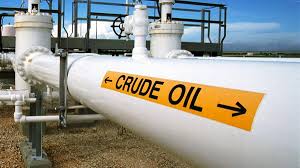London, Oct. 4, 2024 – Oil headed for its strongest weekly increase in two years on fears that Israel may decide to strike Iranian petroleum facilities in retaliation for a missile assault on its territory.
Brent extended gains Friday after surging 5% a day earlier as President Joe Biden said the US was discussing whether to support potential attacks on Iranian energy infrastructure.
A US official said later the administration was still in talks with Israel and believed no decision had yet been taken.
Crude has soared almost 9% this week as the escalation of hostilities raises the possibility of disruption to Middle East oil supplies. Israel and Iran, as well as Tehran’s proxies in Lebanon, Gaza and Yemen, have been facing off for the past year, stoking fears of an all-out conflict that could drag in other countries.
“While probabilities for worst-case scenarios are very low, everyone is still biting nails for what will happen in the coming days as we await the retaliatory attack by Israel on Iran,” said Bjarne Schieldrop, chief commodities analyst at SEB AB.
Iran fired a barrage of missiles into Israel earlier this week after Israel stepped up its offensive against Tehran-backed Hezbollah, including sending troops into southern Lebanon.
The Group of Seven nations has called on countries in the region to “act responsibly and with restraint.”
The Middle East accounts for about a third of the world’s crude supply. Iran has been pumping about 3.3 million barrels a day in recent months, making it the No. 3 producer in the Organization of Petroleum Exporting Countries.
Citigroup Inc. has estimated that a major strike by Israel on Iran’s export capacity could take 1.5 million barrels of daily supply off the market. If Israel struck minor infrastructure, 300,000 to 450,000 barrels may be lost.
There’s also concern that Tehran might raise the stakes by targeting energy infrastructure in neighboring states or supply routes such as the critical Strait of Hormuz.
Clearview Energy Partners said an interruption of flows through the waterway at the mouth of the Persian Gulf could drive crude $13 to $28 higher.
Others were skeptical about the likelihood of significant market disruption. An attack by Israel against Iran’s oil facilities is the “least likely” option, according to ANZ Group Holdings Ltd. Such a move would upset Israel’s partners, including the US, and may also induce a more severe response from Tehran, analysts Daniel Hynes and Soni Kumari said in a report.
Still, options markets are flashing warning signs, as investors bet that oil could rise further. West Texas Intermediate call options, which profit from price gains, were at the widest premium to the opposite puts in 2 1/2 years as of Thursday’s close. Implied volatility has also spiked.
The crisis has also started to ripple through to the shipping sector, with earnings for oil tankers rallying since the most recent escalation. (Bloomberg)





